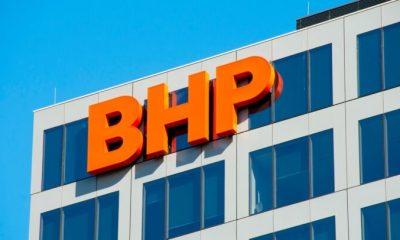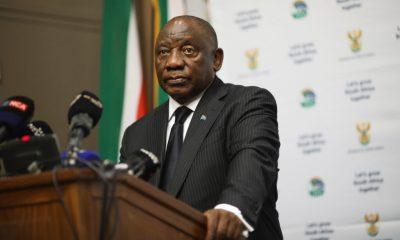Business
South Africa Eyes Middle East Expansion Amid Trump’s Tariff Threats

South Africa is stepping up efforts to diversify its agricultural export markets following US President Donald Trump’s recent announcement of possible tariffs exceeding 10% on South African goods—a move that could significantly impact the country’s $13.7 billion agriculture export industry.
According to Wandile Sihlobo, Chief Economist at the Agricultural Business Chamber of South Africa (Agbiz), the country must “remain neutral and proactive” by targeting new markets, particularly in the Middle East, which he says offers untapped potential.
“The Middle East imports billions in food products annually, yet South Africa captures only a sliver of that,” said Sihlobo on Monday.
South Africa’s agricultural exports grew by 3% in 2024, with nearly half heading to the rest of Africa and large volumes going to the EU, UK, Asia, and Middle East. But Sihlobo warns that relying on current markets could be risky amid global trade uncertainties.
Untapped Potential in Saudi Arabia, UAE, and Qatar
Sihlobo highlighted Saudi Arabia as a prime opportunity, where agricultural imports total around $25 billion annually. Yet, South Africa supplies just 1%, ranking 31st on the list of exporters to the kingdom.
The country also has minimal market share in the UAE (2%) and Qatar (2%), ranking 16th and 10th respectively.
“South Africa’s presence in the region is still peripheral,” Sihlobo noted, emphasizing the need for better trade agreements, government support, and strategic marketing to gain ground.
Products currently exported include meat, grains, oilseeds, and fruit—all of which have room to scale in these markets, given their growing demand and food import dependency.
Preparing for a Post-Agoa Future
The looming threat of tariffs from the United States also puts South Africa’s preferential trade access under the African Growth and Opportunity Act (AGOA) into question.
“We must work to retain access to the US, but also begin discussions around a post-Agoa framework that includes free trade agreements,” said Sihlobo.
The Southern African Agri Initiative’s CEO, Francois Rossouw, echoed the urgency to diversify.
“The Middle East is more than a backup—it’s a growth strategy. Market diversification cushions us from political risk and creates new revenue opportunities,” he said.
Poultry Industry Pushes Back
Izaak Breitenbach, CEO of the South African Poultry Association, warned that if the US ends its AGOA benefits, South Africa should consider removing its anti-dumping duty-free access for 71,000 tons of US chicken exports.
“If the US imposes tariffs, we’ll ask the government to end this benefit,” he said, adding that the local industry has long felt pressured by subsidized US imports.
Next Steps: Investment, Compliance, and Partnerships
Both Rossouw and Sihlobo agree that unlocking the Middle East and other emerging markets requires investment in production quality, traceability, and phytosanitary compliance—key standards that Middle Eastern countries demand.
“It’s not just about shipping more goods; it’s about building long-term partnerships with governments and distributors in these regions,” Rossouw said.
A Strategic Shift on the Horizon
South Africa is at a crossroads. The US tariff threat has sparked necessary conversations about the country’s global trade footprint. While the nation boasts a strong agricultural base, expanding into less saturated markets like the Middle East could be the key to long-term growth and resilience.
As Sihlobo aptly put it:
“Industry growth depends on relationships. We need to nurture the ones we have, and build new ones where opportunity exists.”
{Source IOL}
Follow Joburg ETC on Facebook, Twitter , TikTok and Instagram
For more News in Johannesburg, visit joburgetc.com



























